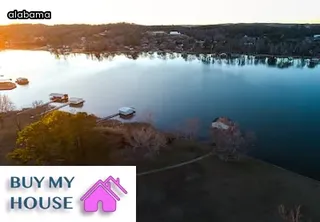Adverse Possession in Alabama is a legal concept that allows one to gain title to property through possession and use, usually over a period of time. In Alabama, the process of adverse possession requires continuous and exclusive use of the property for ten years or more.
During this time, the squatter must pay all taxes on the property and maintain it as if it were their own. To claim ownership under adverse possession, the squatter must prove that they have been in open and notorious possession of the land for at least 10 years.
Open and notorious possession means that the squatter’s use of the land was visible and public enough that any reasonable owner would understand what was happening. Additionally, squatters must prove that they possess the land without permission from its rightful owner, with good faith belief that they own it, and under color of title (they believe they are legally entitled to act as owner).
If all these requirements are met, title to the property may be transferred to a squatter after ten years.

Squatting on publicly owned land in Alabama is illegal, however it is possible to legally occupy a property through adverse possession. Squatters in Alabama may be able to take title of a property if they comply with the state’s laws and regulations.
To acquire the rights to a property by adverse possession, squatters must prove that they have been occupying the property for at least 10 years before filing their claim. Additionally, squatters must demonstrate that they have been paying taxes on the property for those 10 years and that all improvements to the property have been made with their own money.
In order to successfully gain title to a piece of public land in Alabama through adverse possession, squatters must also provide proof of continuous and exclusive occupancy of the land during that time period.
If you are looking to dispossess a squatter in Alabama, there are a few legal steps that must be taken. First, the property owner must serve a written notice to the squatter that requires them to leave the premises within seven days.
If they do not comply, then an eviction lawsuit should be filed in district court. The lawsuit should include proof of ownership and an account of why the squatter is being evicted.
It is important to note that if the squatter has been living on the property for at least ten years, then they may have established adverse possession rights. If this is the case, then it may be necessary to obtain a court order before any eviction takes place.
Property owners should contact an experienced real estate attorney for further advice about how best to proceed with dispossessing a squatter in Alabama.

When a property is owned by a deceased individual, certain rules and regulations must be followed in order to disclose the death of the homeowner. In Alabama, the probate court is responsible for handling the estate of the deceased homeowner and ensuring that all estate obligations are met before transferring ownership.
This includes disclosing any liens or debts against the property as well as payments for outstanding taxes. Furthermore, it is important to inform potential buyers of a past owner's death in order to avoid any surprises down the road.
In some cases, this also requires disclosing any adverse possession claims made against the property prior to sale, which can be complicated if squatters' rights were granted during this time. It is essential to research state laws on adverse possession prior to selling a house with a deceased owner in order to ensure that all parties involved are protected from potential legal issues.
In Alabama, it is important for property owners to know their rights in order to protect their land from squatters. Squatters are individuals who occupy another person's property without permission or legal authority and can take possession of the land through a process known as adverse possession.
It is crucial for Alabama property owners to be aware of the laws governing adverse possession in order to protect their land from this type of acquisition. If an individual successfully claims ownership through adverse possession, they may be able to gain title over the disputed property, which can bring with it many benefits.
Property owners should also understand how to deal with squatters if they are encountered so that they can take appropriate action to protect their rights and possessions. Knowing the laws regarding adverse possession in Alabama is essential for all property owners, as it helps them secure their rights and keep their land safe from unauthorized use.

The Color of Title concept is a key element in understanding Squatters' Rights in Alabama. This concept allows a squatter to gain title to property they have been occupying without permission from the real owner.
In order for a squatter to obtain title, they must be occupying the property openly and notoriously, meaning that their occupancy must be visible to the public and known by the true owner. The squatter then must pay all taxes and assessments on the property for a period of seven years, non-consecutively, before taking possession of it.
In addition, during this period, the squatter must possess the land as if it were his or her own with no restrictions from the true owner. After this time frame has elapsed, Alabama law states that the squatter may become the legal owner and obtain title to the property through adverse possession.
This process requires filing paperwork with your local county courthouse and can involve significant court costs and fees.
Oregon real estate laws and regulations are important for anyone who is seeking to understand and protect their rights as a squatter in the state. The Oregon Revised Statutes outline the processes of adverse possession, which allow someone to acquire title to another person’s property through continuous occupancy and use.
Generally, an individual must possess the property for 10 years while paying taxes on it and meeting other requirements in order to make a valid claim of adverse possession. Furthermore, Oregon law prohibits any type of forcible entry upon another’s real property, meaning that squatters do not have the right to use threats or intimidation when entering or taking possession of the property.
It is also important to note that Oregon has certain regulations regarding spousal rights in adverse possession cases, so it is essential for those seeking to establish ownership over land through squatting to be aware of these statutes.

Making your home less attractive to squatters is an important step in protecting your property and understanding squatter's rights in Alabama. First, be sure to secure all access points to the property including windows, doors and gates.
Second, make sure there are signs posted that clearly state that it is private property with no trespassing allowed. Third, keep up with maintenance and landscaping around the property as an unkempt area can be a sign of abandonment which may attract squatters.
Fourth, if you know of any squatters around your area or have seen them on your property previously, contact local law enforcement to report the situation. Finally, create relationships with neighbors and stay in communication with them so they can alert you of any suspicious activity on your property.
By following these steps, you not only better understand squatter's rights in Alabama but also help protect yourself from potential unwanted guests.
In Alabama, the law of color of title is recognized. This means that if a person has possessed a property for a certain length of time and believes they have legal title to it, they can make a claim in court to prove their right to the land.
The claimant must show that they have held possession for seven years or more, that the property was occupied openly and notoriously by them during the period of possession, and that there was an apparent and exclusive ownership by the claimant under a written instrument which was either voidable or unenforceable. In addition, the claimant must have paid taxes on the property during this seven year period and have acted as though they were the owner.
The elements of color of title must be proven by clear and convincing evidence before any ruling can be made in favor of the party claiming adverse possession.

Adverse possession in Alabama can be a great way to acquire property without having to pay for it, but there are pros and cons that must be considered. On the one hand, it’s an efficient way of obtaining land from someone who has abandoned it or is otherwise unable to claim ownership.
On the other hand, squatters may be subject to prosecution for criminal trespass if they do not meet the requirements of adverse possession. Additionally, even if the squatter does fulfill all of the criteria for adverse possession, the original owner may still have grounds for a civil suit against them.
It’s important to understand what exactly constitutes adverse possession in Alabama so that you can determine whether or not this method is suitable for your particular situation.
When researching squatters' rights in Alabama, it is important to understand public records and how they might be used to protect one's right to adverse possession. Public records provide an avenue for any individual to gain access to information regarding a property's ownership history, liens, or encumbrances.
This information can be invaluable when determining if the squatter has a legal right to the property. Furthermore, certain documents such as tax records and tax bills may help determine if the squatter is eligible for adverse possession in Alabama.
Knowing the nuances of these public records can be helpful in understanding not only the squatter's rights but also their limitations under Alabama law. Additionally, researching case law can provide insight into how similar situations have been handled by courts in the past and what legal precedents may be applicable.
Understanding both public records and case law are essential steps for anyone looking to establish their right to adverse possession in Alabama.
Squatting is illegal in the state of Alabama and is considered a criminal offense. According to Alabama law, an individual may not take possession of another person’s land without their consent.
Squatting is considered a form of “adverse possession” and falls under the legal definition of trespass. If an individual illegally occupies or possesses another person’s property, they can be held liable for damages or even face criminal charges in some cases.
In Alabama, squatters are not allowed to benefit from taking possession of someone else's land; should they remain on the premises for more than two years, they will be unable to acquire title to the property through adverse possession. Furthermore, if a squatter is caught on private property without permission and refuses to leave when asked by the owner, they could be arrested and charged with trespassing.

In Alabama, adverse possession is a legal concept that allows someone to acquire title to another person's property by occupying it for a certain number of years.
To establish adverse possession in the state, an individual must occupy the land for at least 10 years and demonstrate that they have either paid taxes on the property or made other improvements to it.
The individual must also show that they have openly and notoriously used the property as if they had a right to do so.
If these requirements are met, then after 10 years of continuous occupation the individual may be able to obtain title to the property through adverse possession.
Yes, Alabama recognizes adverse possession laws. In order to acquire title to real estate through adverse possession in the state of Alabama, a squatter must occupy and use the property openly, continuously, exclusively, and hostilely for at least 10 years.
The occupant must also pay all taxes assessed against the land during that time period in order to gain title. This is known as the 'tacking' doctrine.
Adverse possession laws are designed to encourage people to make improvements on properties they occupy, while protecting the rights of true owners. If you're considering squatting on someone else's land in Alabama, it's important to understand what your rights may be under adverse possession law before making any decisions.
In Alabama, squatters rights are governed by the law of Adverse Possession. Squatters rights can be obtained through the possession of an abandoned property for a set amount of time.
The shortest time for squatter’s rights in Alabama is seven years. During this time, the squatter must occupy and use the property as if they were the rightful owner; this includes paying taxes and maintaining the property.
If these conditions are met, then the squatter may be able to gain title to the property after seven years. Thus, understanding how long it takes to acquire squatters’ rights in Alabama is essential for anyone looking to take advantage of adverse possession laws.